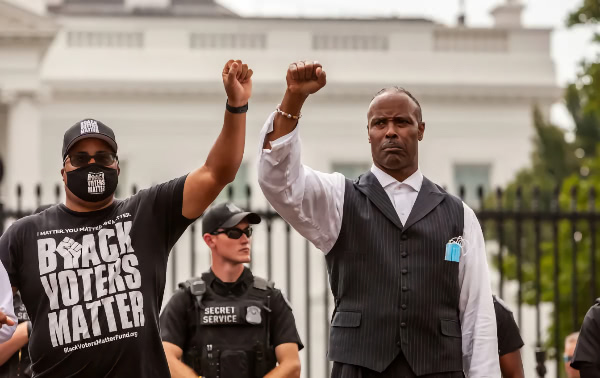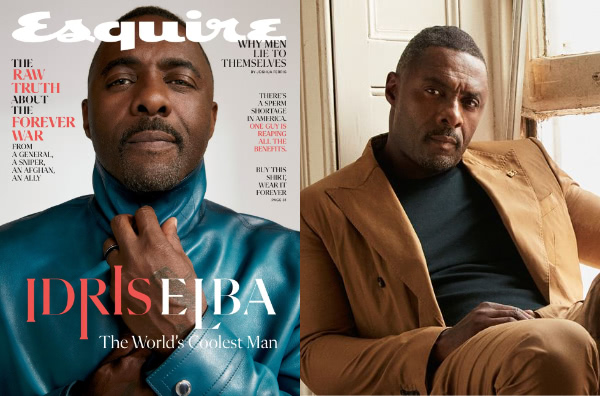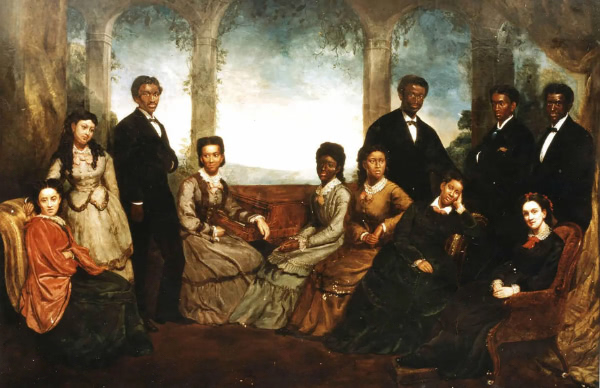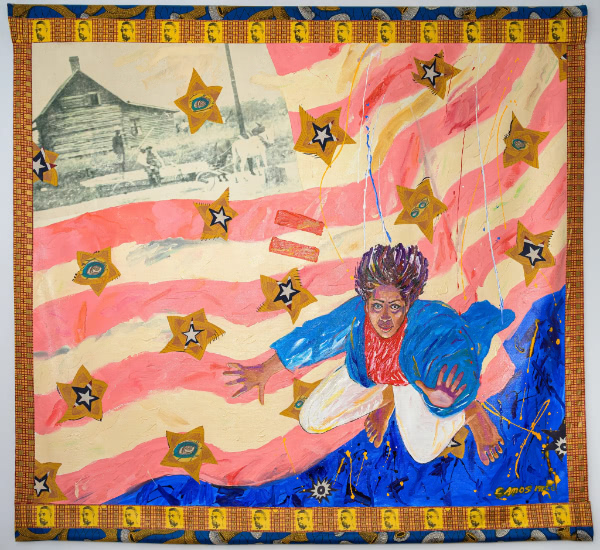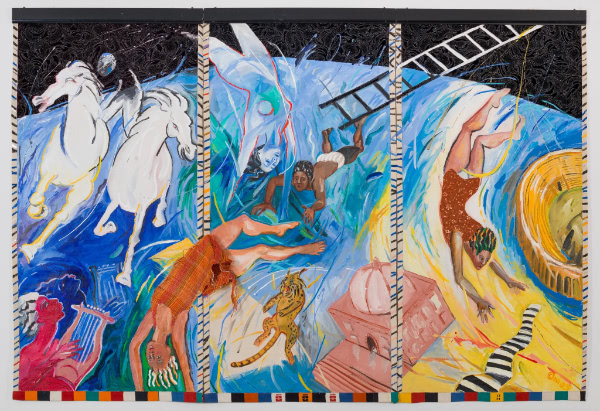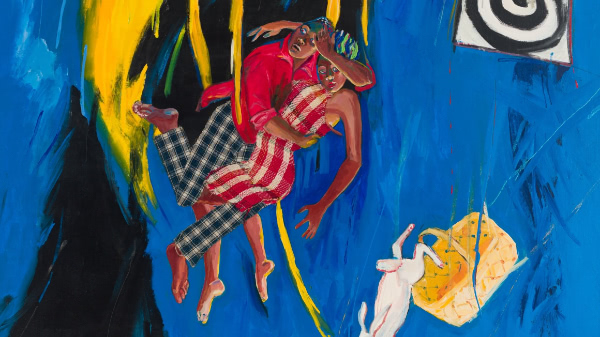Democrats Are Ready to Abandon Black Voters, Again
Elie Mystal, writing for The Nation:
We have come to a familiar crossroads of American politics. Democrats, who cannot win national office without the overwhelming support of Black people, are facing rejection from perpetually aggrieved, poorly educated whites. These whites are poised to vote to defeat Democrats in upcoming elections. In response, a chorus of powerful Democrats has risen up inside the Beltway to tell Democrats that abandoning Black people—the very people who put them in power in the first place—and making performative efforts to win the support of racists, is the only way to stay in power.
This strategy has a name:
The move of crapping all over the Black people you need to win elections so that white racists feel more comfortable with you was tried and perfected by Bill Clinton. He called it “triangulation.” And it worked. Clinton was good at two things: kissing Black babies and sending Black children to jail.
Clinton was able to keep racists happy through dog whistles, supporting legislation harmful to Blacks, and calling out prominent Black leaders (e.g., Jesse Jackson).
The problem with triangulation today, Mystal argues, is Trump. Democrats shouldn’t try to appease racist swing voters because they would favor Trump’s brand of racism over theirs any day.
Democrats will never out-racist the modern Republicans in the eyes of racists.
Biden, I’m sure, genuinely feels bad that some Black refugees got whipped into a river on his watch. He’s not, you know, going to do anything to stop it, but I believe he’s enough of a human to feel sorry about it. Republicans, meanwhile, tell their voters to be proud of that kind of violence.
I don’t know if the solution Mystal puts forth later is workable, but his piece clearly lays out the Democratic party’s situation and how it traditionally handles it.
Colin Powell’s Fateful Moment
Dexter Filkins, writing for The New Yorker:
Though Powell created a doctrine of avoiding war unless absolutely necessary, he will be remembered for making the faulty case for invading Iraq.
What Does Justice Look Like For Ahmaud Arbery, His Family, and The Black Community?
Allison Gaines for Zora:
Every month, approximately 30 to 50 people are killed due to Stand Your Ground laws. Sadly, Black people are disproportionately victims of these extrajudicial killings. “The odds of a white-on-black homicide is found 281% greater than the odds of a white-on-white homicide,” in these cases.
In other words, these laws are being used by White people to kill Black people with impunity — modern-day lynchings. All they have to do is allege fear, and as mentioned before, they don’t have to retreat even if doing so could avoid violence if they did. Instead, these laws encourage confrontation, and too often, White people use Stand Your Ground laws as justification for killing Black men like Arbery.
‘Everybody Wants To Be Black Until The Police Show Up’
Maia Niguel Hoskin, writing for Zora:
Nicki Minaj was recently trending, yet again, after defending Little Mix’s former member, Jesy Nelson, after Nelson was accused of Blackfishing in a music video for her solo debut “Boyz,” which features the “Chun Li” rapper. Minaj received harsh criticism from Little Mix fans and even some of her own fans over her comments in support of Nelson.
Hoskin continues:
Our Black culture is not a cloak that can be taken on and off. In pretending to do so, though, Blackness is trivialized and reduced to a trend, which further silences and perpetuates the invisibility of the Black community. When non-Black people appropriate Black culture, they are actively participating in a form of racial violence.
The Idris Elba Effect
Tim Lewis profiles the actor for Esquire:
“So where I am now, you’re looking at a man that’s very thankful. You’re looking at a man that’s very reflective of what’s happened over the last eighteen months. You’re looking at a man that doesn’t really have time to waste on pretending to be anything but what I am. Who I am and what I am.”
How am I just now finding out a Luther movie is coming?
They Didn’t Want to Sing Spirituals, but They Did — and Changed American Music
Margaret Renki, reporting for The New York Times:
The singers were all students at Fisk University, a school for emancipated former slaves. They were stranded at a rural train station with Ms. Sheppard and their director, a white abolitionist named George White, when an angry mob arrived. In the face of the white men’s fury, the students began to sing.
“One by one, the riotous crowd left off their jeering and swearing and slunk back until only the leader stood near Mr. White and finally took off his hat,” Ms. Sheppard wrote. “The leader begged us, with tears falling, to sing the hymn again.”
See also: Walk Together Children: The 150th Anniversary of the Fisk Jubilee Singers
Adapting Nina Simone’s Complicated Life Story For Kids
Author Traci N. Todd and illustrator Christian Robinson talk about their new children’s book Nina: A Story of Nina Simone on NPR’s All Things Considered:
TODD: I think that a lot of times when we see stories of civil rights leaders, they’re very much sort of pushed into a moment. And there’s no sense of what came before and how things got that way. And I just wanted to tell Nina’s story as an experience of something that built upon the things that came before because that’s sort of how I experienced her music.
The Many Styles of Emma Amos, and Her Drive to Get Free
Jillian Steinhauer for the Times:
Amos’s work is rigorous and complex, clever and passionate, jam-packed with intellectual and emotional stimulation. She attempted to recast history — art’s, the country’s, her own — from her position as a Black woman. Amos did not just want a seat at the table; she wanted to remake the table itself.
Emma Amos: Color Odyssey, a survey of her work is on view at the Philadelphia Museum of Art through January 17, 2022.
Thanks for reading. See you next week.

